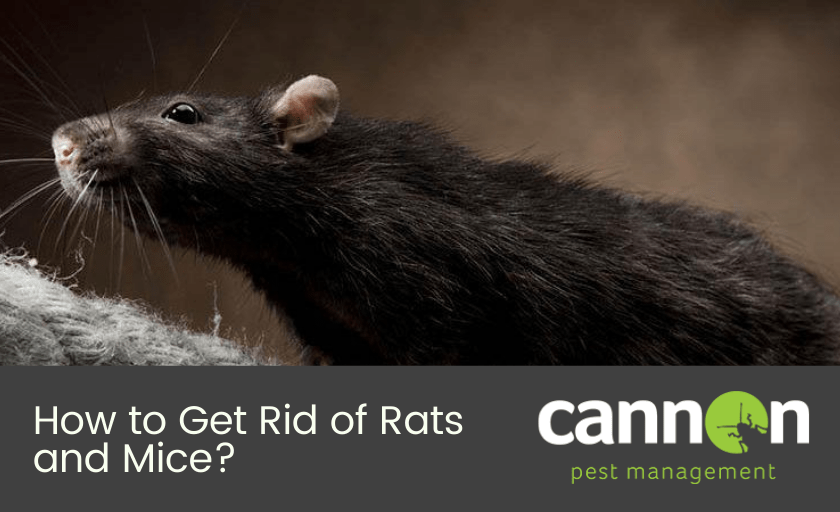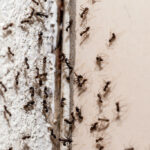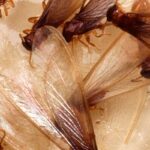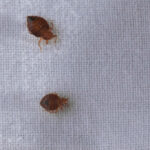Rats and mice are nasty critters! Not only do they cause damage to your property, but they can also cause severe diseases. And identifying rodent activity and getting rid of them, is the first step to a safer house and healthy family.
You may not know, rats and mice are different creatures! But either way, they pose the same serious dangers. If you are facing a rodent infestation and are looking at your options for how to get rid of rats and mice, we have solutions here you can try yourself if you want to do this before calling in professional pest control services. These options are easy to do and are likely to be more effective than you chasing these vermins around your home and becoming increasingly frustrated!
Rodenticides (rat poison/ rat bait)
Rodenticides are a food product that is commonly called rat bait or rat poison. Most rodenticides have an anticoagulant which prevents blood from clotting. After a rodent has consumed enough rodenticide they will bleed internally and die. This effect can take anywhere from 3 -10 days depending on whether it is a single-feed or multi-dose rodenticide, and also the size of the rodent that has consumed the bait.
Rodenticides are considered a more efficient and long-lasting control method. It’s also more likely that a rodent infestation can be eradicated using baits. It’s important to first assess the level of rodent activity at your property by performing a thorough inspection looking for signs of rodent activity. This will be rodent droppings, burrows, gnaw marks at entry points and rub or smear marks on well-used pathways. Rodents will almost certainly be active inside your roof (yes that scratching sound could be rats!), walls and under the building, if your home is on a suspended floor. Once you have an idea of the level the rodent infestation, then you can place baits where you have identified the activity. It’s crucial to place a sufficient amount of bait according to the level of rodent activity. If you do not place baits where rodents are active or do not use a sufficient amount of bait, then you will not eradicate the infestation. Even worse, rodents may breed more heavily to replace the members of their colony that you killed.
What are the risks of using Rodenticides (rat bait)?
There are many risks when using a poisoned food product around your home. The most obvious is poisoning to your children, pets, your neighbours’ pets or other non-target animals like possums or birds. There are two types of poisoning, direct poisoning where the baits are consumed directly and secondary poisoning where an animal eats another poisoned animal. It is critical that when baits are used around your home that they are always secured appropriately and out of reach of children and pets. We strongly recommend that you engage a professional pest operator to safely eradicate rodents and ensure that all risks are controlled. Baits can be secured in lockable tamper-resistant rodent bait stations which are placed out of the reach of children and pets. Rodenticides that have a very low risk of secondary poisoning can be used to further reduce the risk to your pets. These may be multi-dose baits or with an active ingredient that is very low risk to secondary poisoning. Treatments done around your home are only as safe as the experience and knowledge of the person that is performing the treatment.
Rodent control using traps
Using traps to capture rats and mice may help reduce rodent numbers around your home but in most circumstances, you’re not going to be successful in eradicating a colony of rodents that are infesting your property. The difficulty lies in the very cautious nature of rodents. The technical term for this instinctive behaviour is called neophobic, meaning that rodents are very cautious of anything new that has been placed within their usual environment. For example, you’re much more likely to have success trapping a few mice that have recently found their way into your kitchen. As this is a new environment for them, they will be more susceptible to being caught by a trap. On the other hand, using traps to catch rodents in the voids of your building, like inside the roof, walls and under the building is much less effective.
Rodent exclusion (proofing)
Carrying out rodent exclusion work is an effective way to make your home less vulnerable to rodent infestation. Unfortunately, in most homes, it’s very unlikely that the full exclusion of rodents from the building voids will be practical. Anything is possible, and it will come down to how much effort and expense you can incur to proof your home against rodent entry. When you consider the entry hole size that rodents require to enter your home, 6mm diameter, about the width of a pencil for mice and 12mm diameter, about the width of your little finger for rats, you can see how difficult this task is. Basically, if rodents can climb onto your roof then it’s going to be very costly to proof the entire roof of your home. The method used to do this is fitting fixed metal gutter mesh over the gutters and all openings, the cost for this service will depend on the type and size of the roof structure. You can expect to pay from $2000 – $4000 to completely proof your home against rodent entry.
Conclusion
As you can see, there are methods available for rodent eradication, reducing rodent numbers or exclusion of rodents. Often it’s best to combine methods to get the best results in controlling rodents around your home. An example would be performing a safe rodent bait treatment combined with rodent proofing. Even blocking a few known entry points can make a difference in changing rodent behaviour and making life more difficult for them. The more that can be done to make your home less inviting the more likely it is that they won’t make your home theirs. We can all agree that this is definitely a good thing!
If you are still unsure about how to eradicate rodents, you can always ask for professional help. Our rodent control specialists in Melbourne have the knowledge and right techniques to effectively remove rats and mice in your house and keep your family safe. Contact us today!







